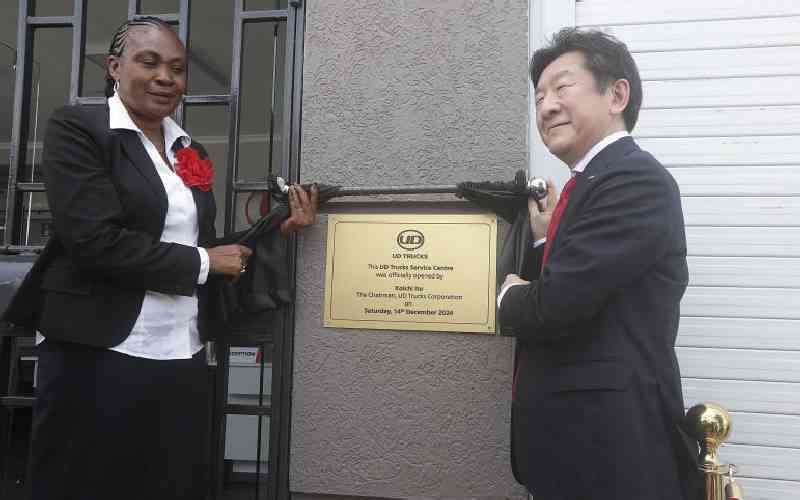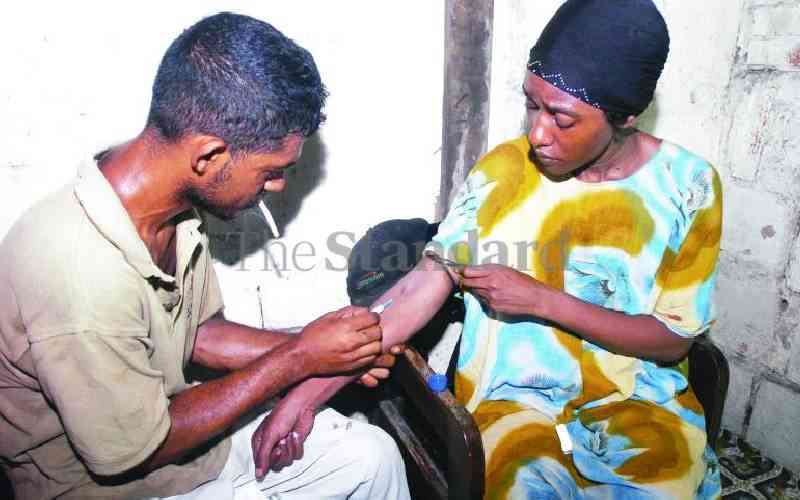
Many Kenyans are struggling with the high cost of internet and mobile devices in the country, limiting the impact that the high internet coverage could have on many.
This is especially the case for those in rural areas, where despite the government setting up infrastructure using money from the Universal Service Fund (USF) and extending mobile telephony coverage, the services including voice telephony and internet access are out of reach for many due to the high cost of services and mobile phones.
This could see the country’s ICT gap widen even as new technologies emerge and some areas push full-steam ahead in exploiting them as others lag.
The 2019 Census established that internet usage stood at 22.7 per cent nationally, In urban areas internet usage stood at 42.6 per cent and in rural areas, it was 13.8 per cent.
Internet usage has risen since to about 40 per cent nationally currently. The mobile service coverage in the country stands at 96.4 per cent, which according to the Communications Authority of Kenya (CA) indicates there are people to whom the internet is available but are not using it creating a usage gap of 56.4 per cent.
Digital skills
This usage gap is largely due to barriers like affordability, accessibility where they lack access devices, electricity or slow speeds etc, lack of relevant content, lack of digital skills and knowledge and lastly safety and security online.
Smartphone penetration is at 67 per cent in the country and penetration in the rural and remote parts of the country is lower. This is true for many residents of Marsabit County, who cited the high cost of smartphones and data plans as a deterrent to making the best use of the communication towers that CA has installed at North Horr.
The area’s voice communication services have significantly improved following the building of telecom masts, but residents haven’t taken full advantage of it yet because many cannot afford cell phones, internet costs are prohibitive, and they lack digital skills.
Assistant chief for Elgade ward Malicha Guyo Bora observed that since the mast was installed in the area, it has been easier to obtain information promptly from the 13 zones in his ward, which are located over 30 kilometres apart.
“Today, it is easy to mobilise the community if we have urgent information to pass to the public. Previously it could take us three to four days to send a messenger around the 13 zones,” Mr. Guyo said. However, he noted that unlike other urban areas, where the availability of such masts has led to business opportunities such as M-Pesa agents and cyber cafes, the locals are yet to venture into such enterprises.
“It is imperative that the public be better informed about the opportunities this telecom tower offers. The majority of users utilise it for voice calls and M-Pesa services, but they may make the most of its availability if they are informed,” he said.
Due to the utilisation disparity in these locations, CA, Safaricom, and Huawei were compelled to launch a trial digital skilling programme in the areas where CA had made telecom mast investments through the Universal Service Fund.
Elgade and Elbeso wards, in North Horr are among the regions that have benefitted from the USF established in 2009, which was envisaged to leverage operations and provision of services in high-cost areas.
All licensed operators providing communication services on a commercial basis are required by law to contribute at least one per cent of their annual gross turnover to the Fund. Currently, the operators are contributing zero point five (0.5) per cent to the kitty.
Baraka Duba, a resident at Elbeso, pointed out that the locals are still experiencing some challenges, like not knowing how to use basic smartphone capabilities, replacement of lost SIM cards, procurement of quality phone batteries, or purchasing airtime through mobile money.
“The awareness done by Safaricom and CA is most welcome. We would appreciate it if this is done often or a customer care shop is set up here to help the new customers,” he noted.
According to the CA sector statistics report as of the end of March 2024, the number of smartphones stood at 34.5 million, while the number of feature phones was 31.22 million.
Senior Project Development Officer at CA Eng Edwin Ombega said the exercise to equip the locals within Marsabit County with digital skills is in line with the State firm’s current strategic plan to increase broadband coverage and usage.
He also noted that a recent study by GSMA identified five barriers to accessing mobile broadband usage, which include affordability, lack of access, lack of digital skills, relevant content, and, online safety.
“The digital skills training aims to empower the citizen, especially those who are getting mobile connectivity for the first time because they are highly likely to be impacted by the barriers identified in the GSMA study,” Ombega said.
Safaricom Senior Technical Regulations Officer Ian Siako said the digital skills exercise enabled them to get feedback from their clients in the regions they visited.
Mr Siako said Safaricom has a plan where customers can pay a deposit of Sh1,000 for a smartphone of their choice and choose a daily fee for one year depending on the model of the phone.
“Majority of the clients we interacted with owned feature phones. However, they would like to have smartphones,” Siako said.
He noted that smartphones would enable them to access educational, health content, and, veterinary services.
“Being pastoralists, the residents in these areas not only want to talk with the youth grazing the livestock in the field far away but would also want to see them and the animals, and this can only be achieved by having a smartphone,” he noted.
Mr Siako also noted that the launch of East Africa Device Assembly Kenya Ltd (EADAK) - a joint venture of local mobile network operators and international device manufacturers, has lowered the costs of smartphones in the country.
He however called on the CA to consider using the USF to further subsidise the smartphones in the market.
 The Standard Group Plc is a multi-media organization with investments in media platforms spanning newspaper print
operations, television, radio broadcasting, digital and online services. The Standard Group is recognized as a
leading multi-media house in Kenya with a key influence in matters of national and international interest.
The Standard Group Plc is a multi-media organization with investments in media platforms spanning newspaper print
operations, television, radio broadcasting, digital and online services. The Standard Group is recognized as a
leading multi-media house in Kenya with a key influence in matters of national and international interest.











